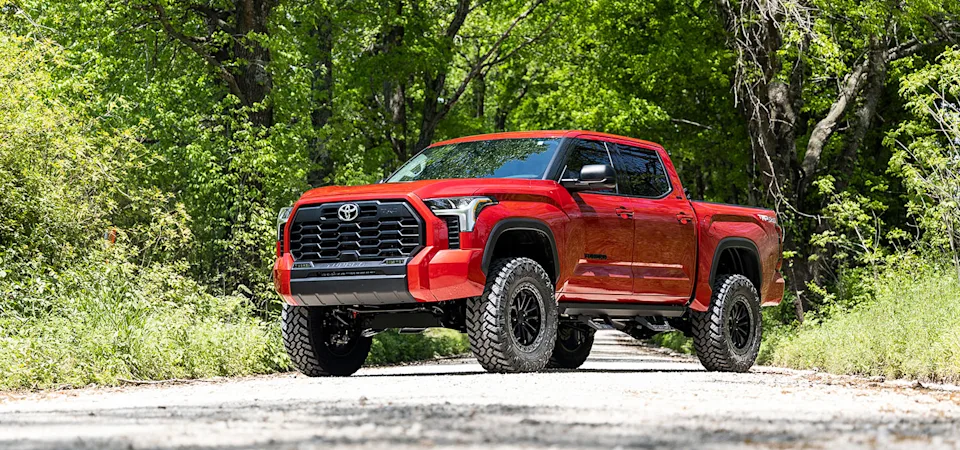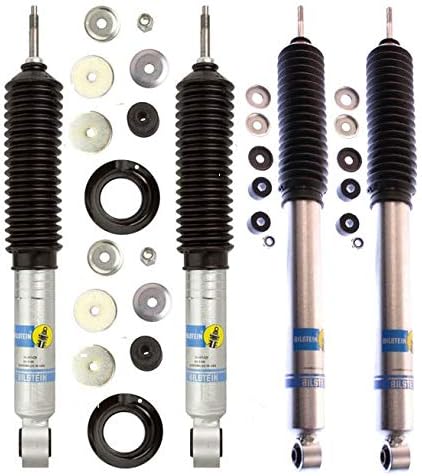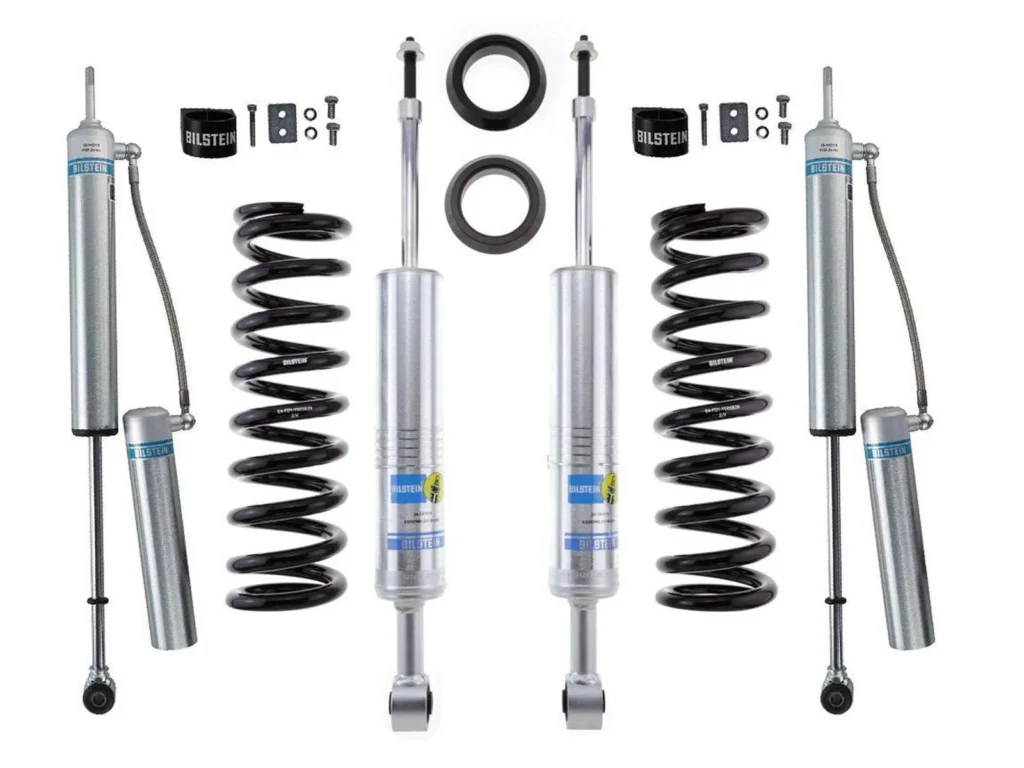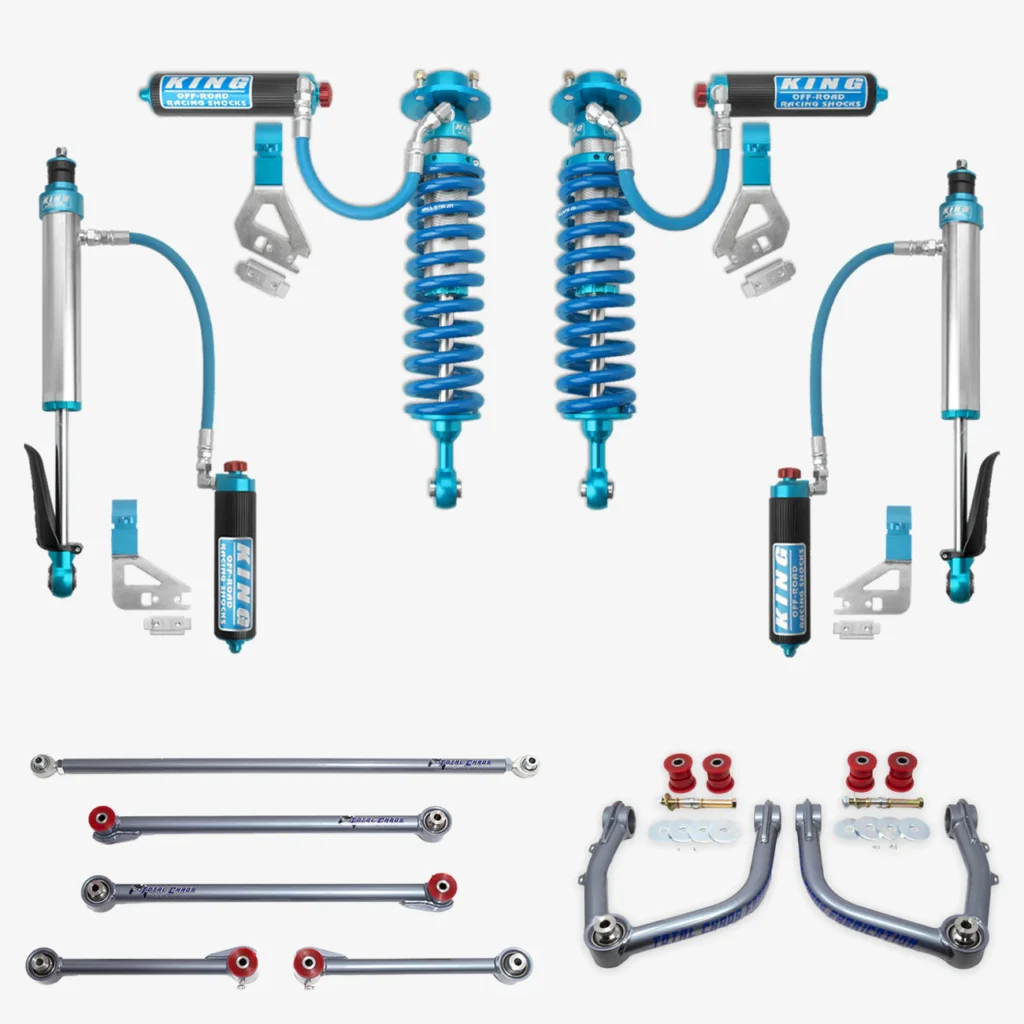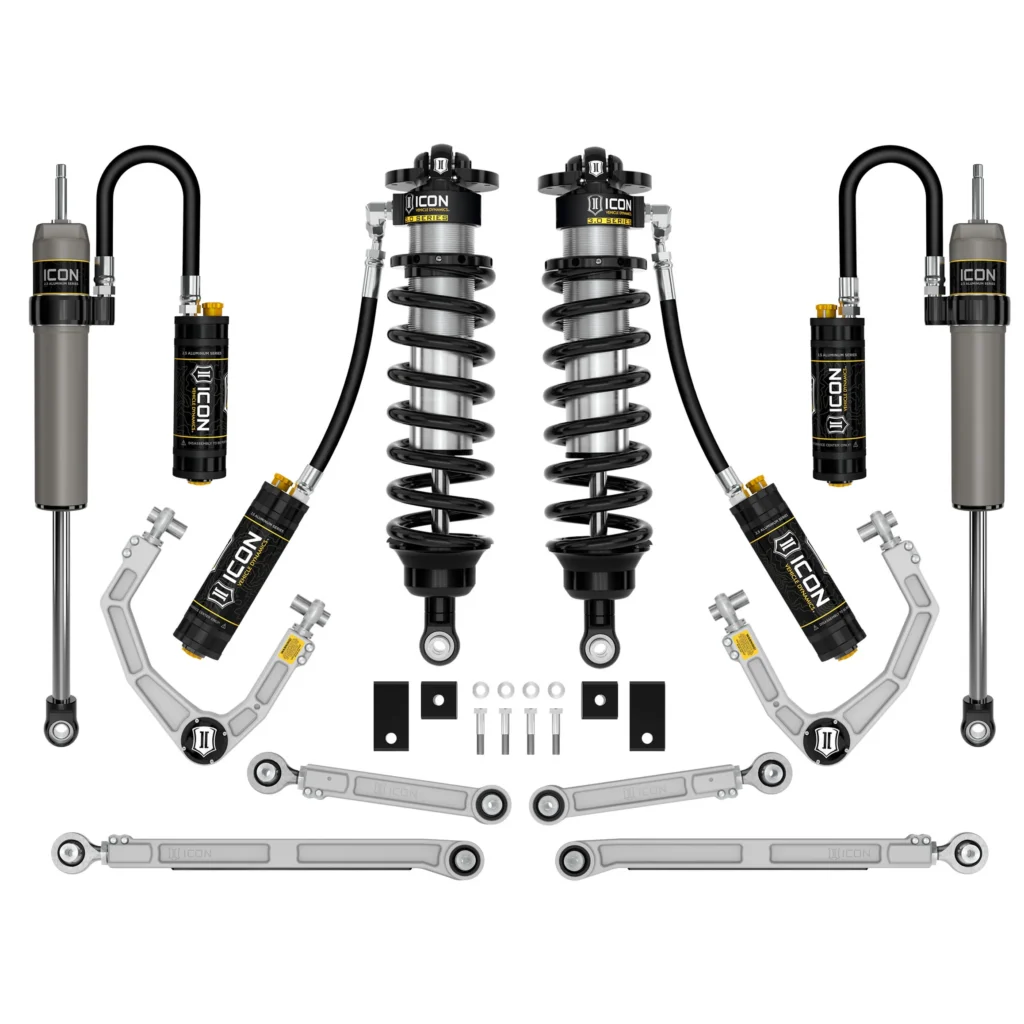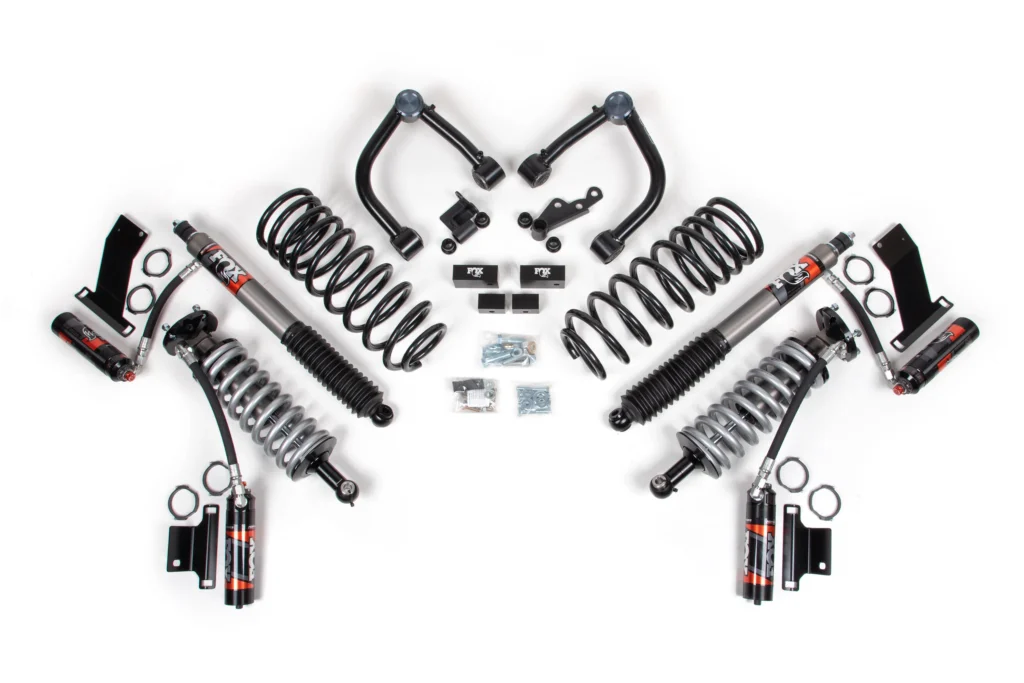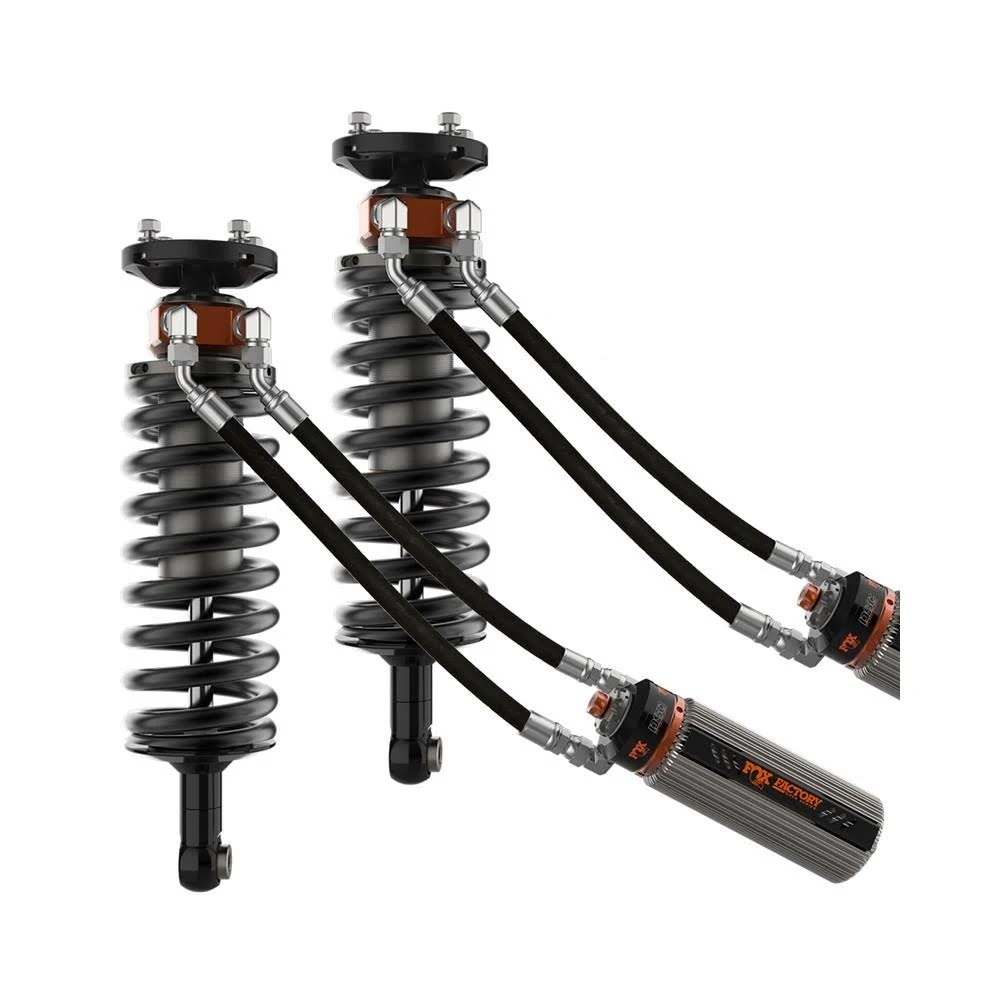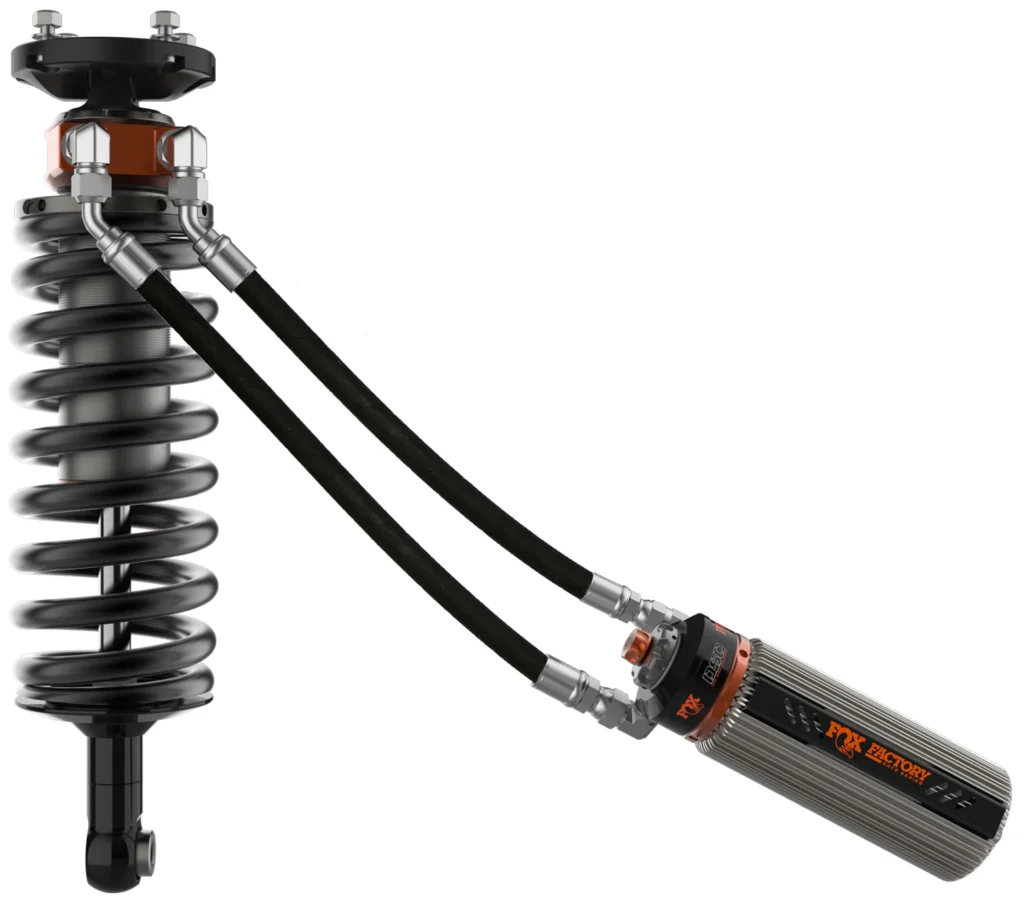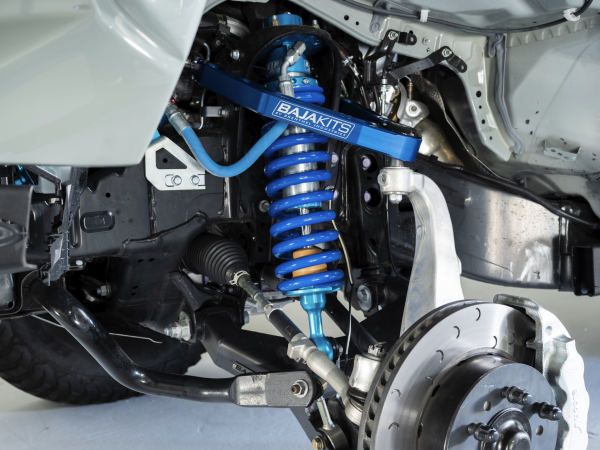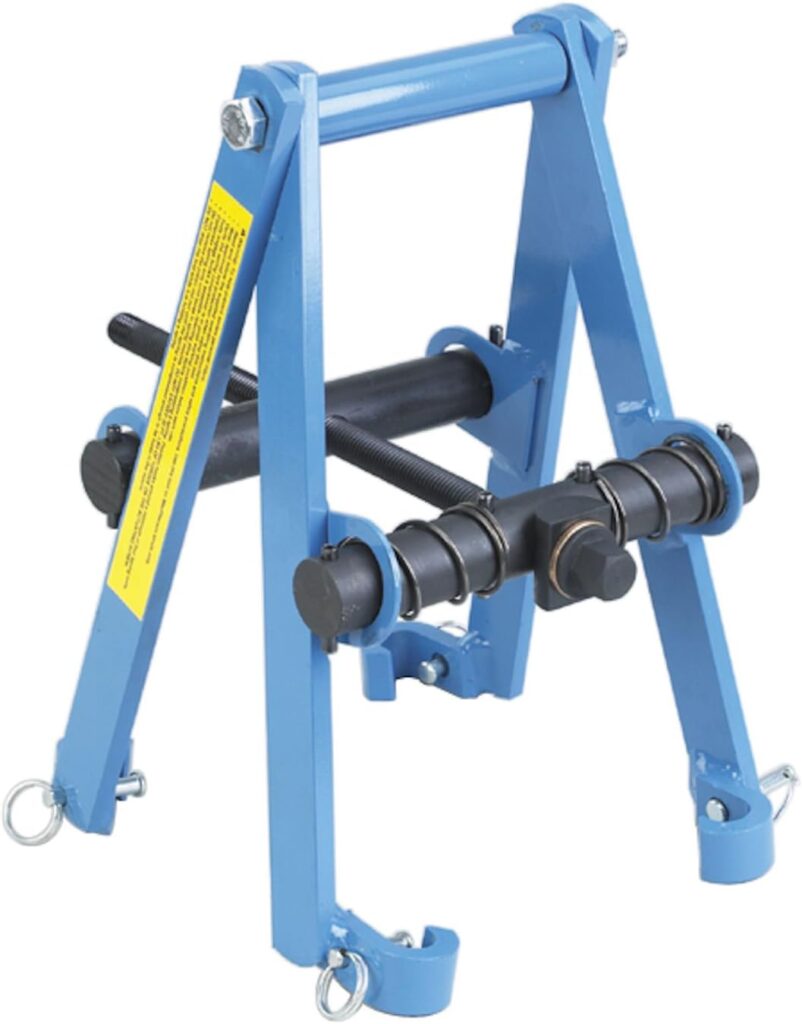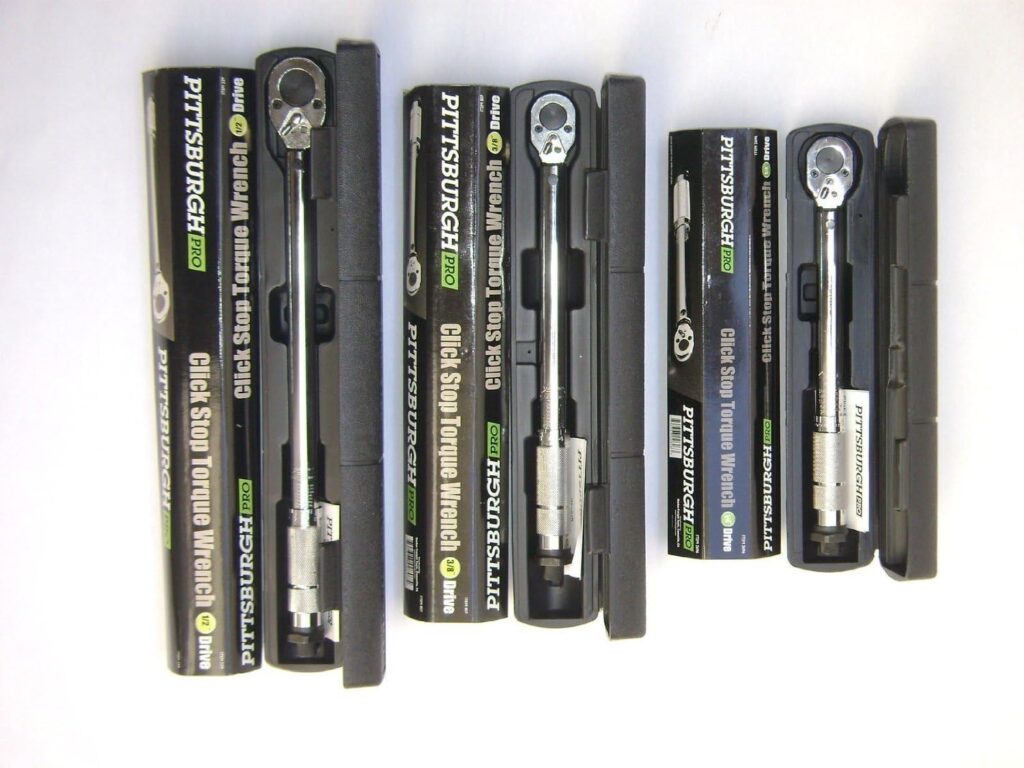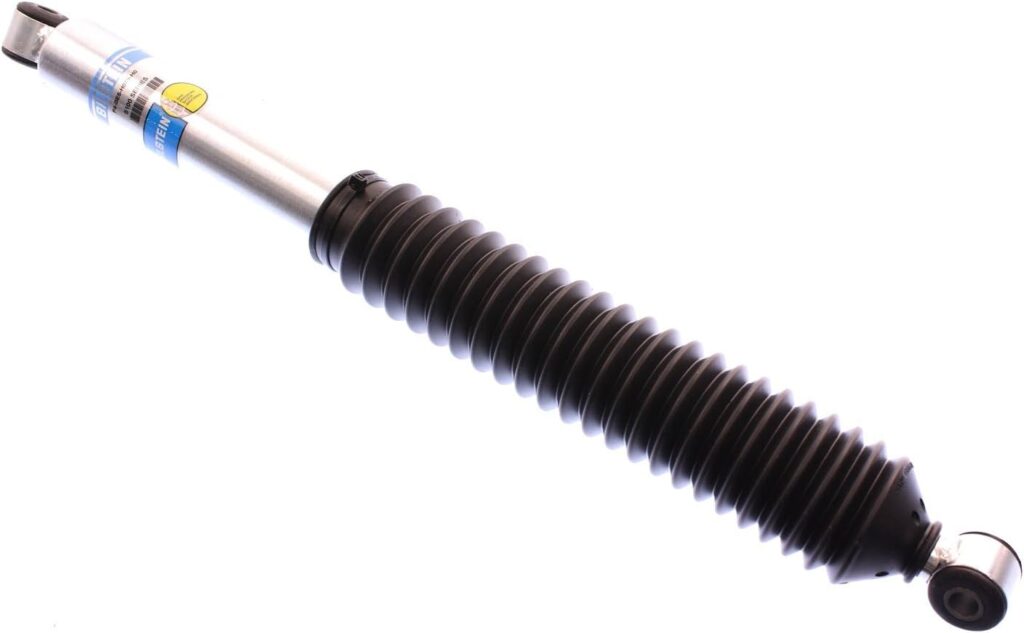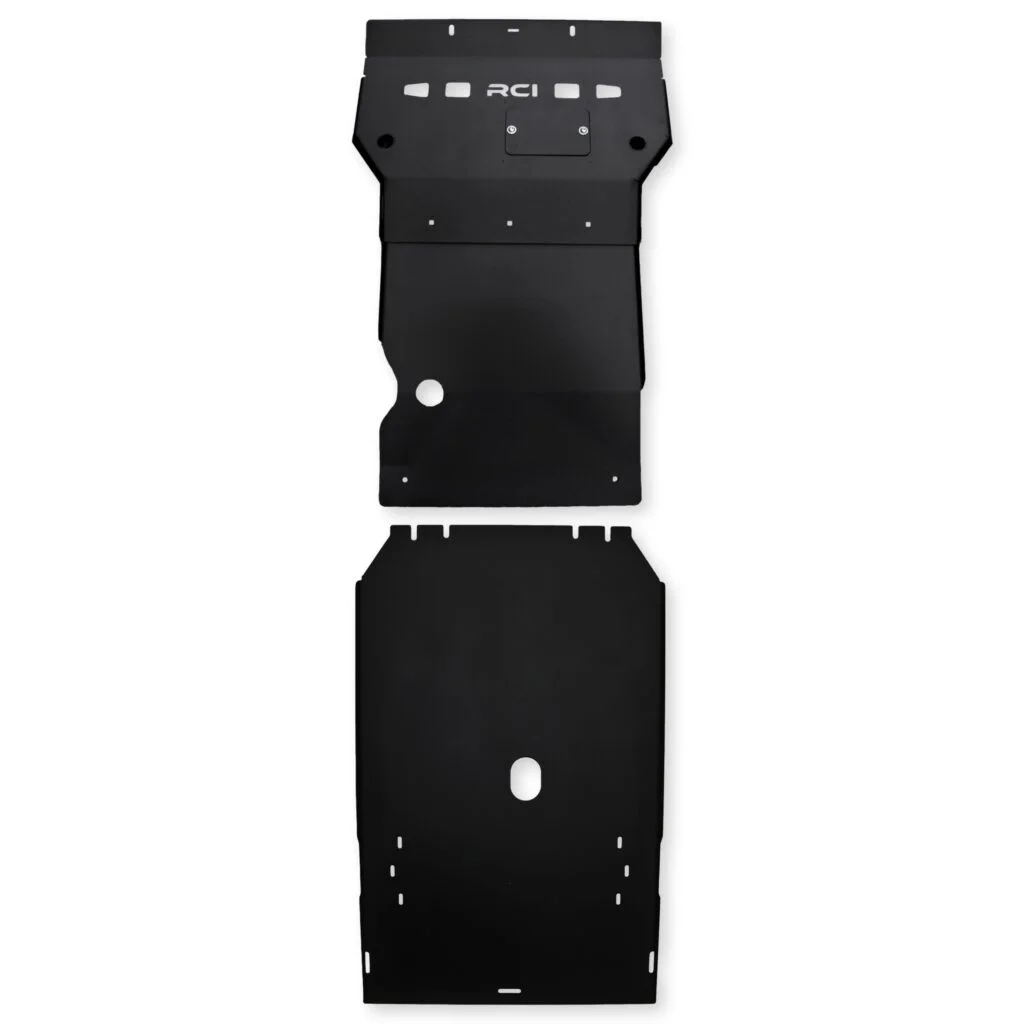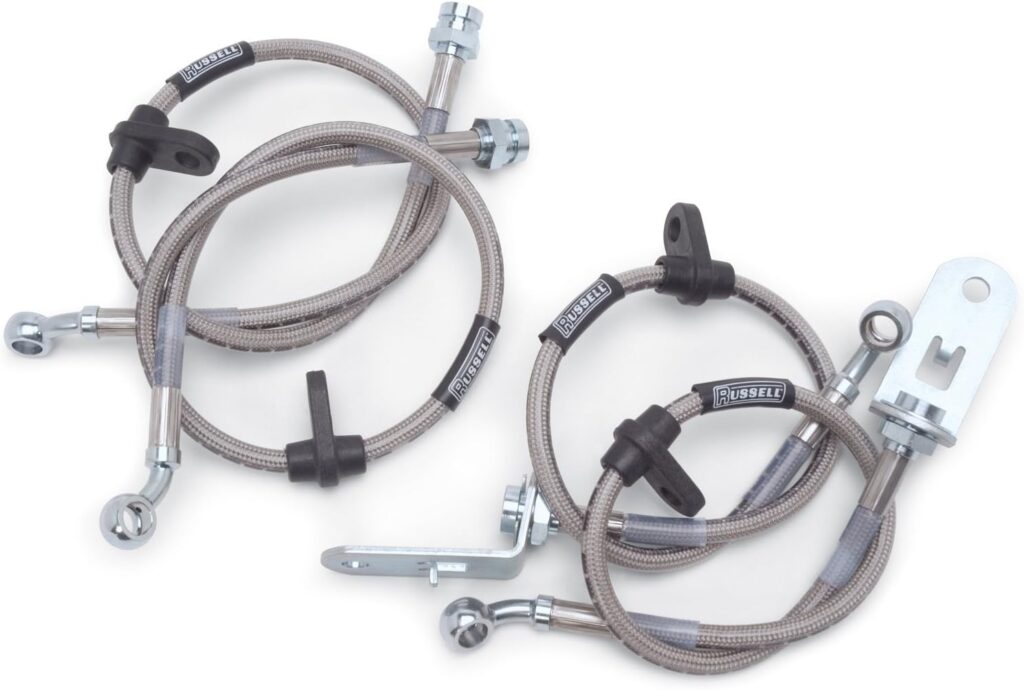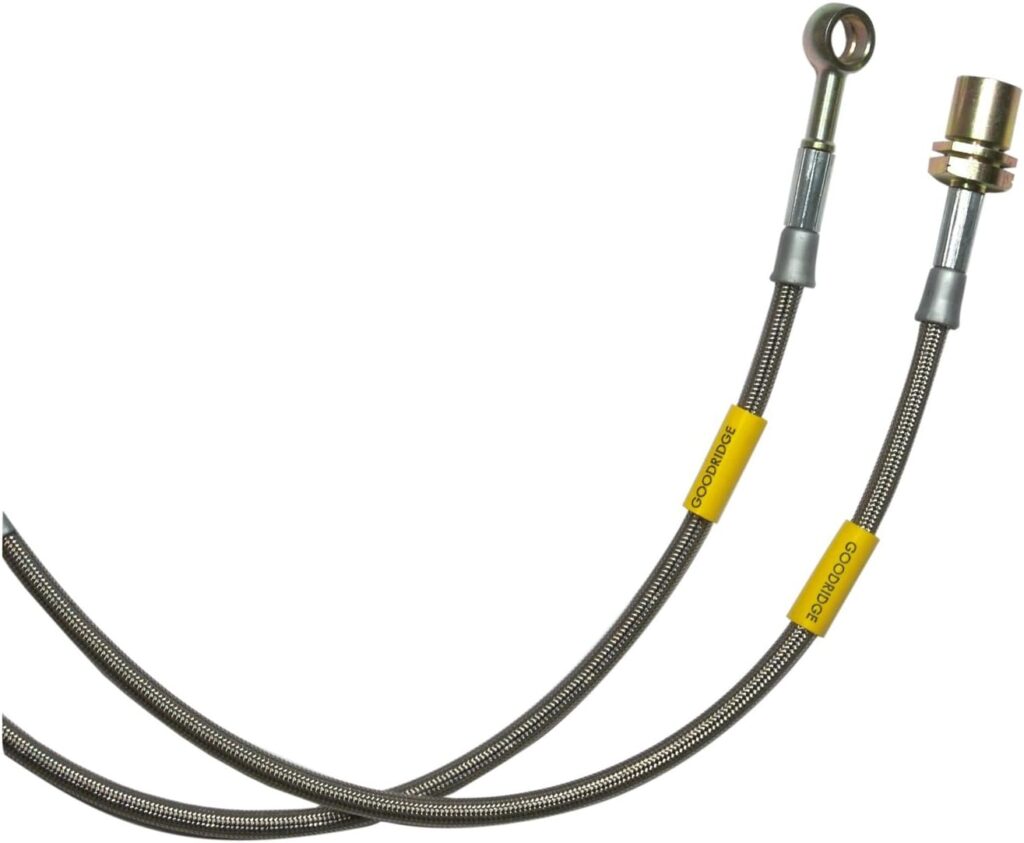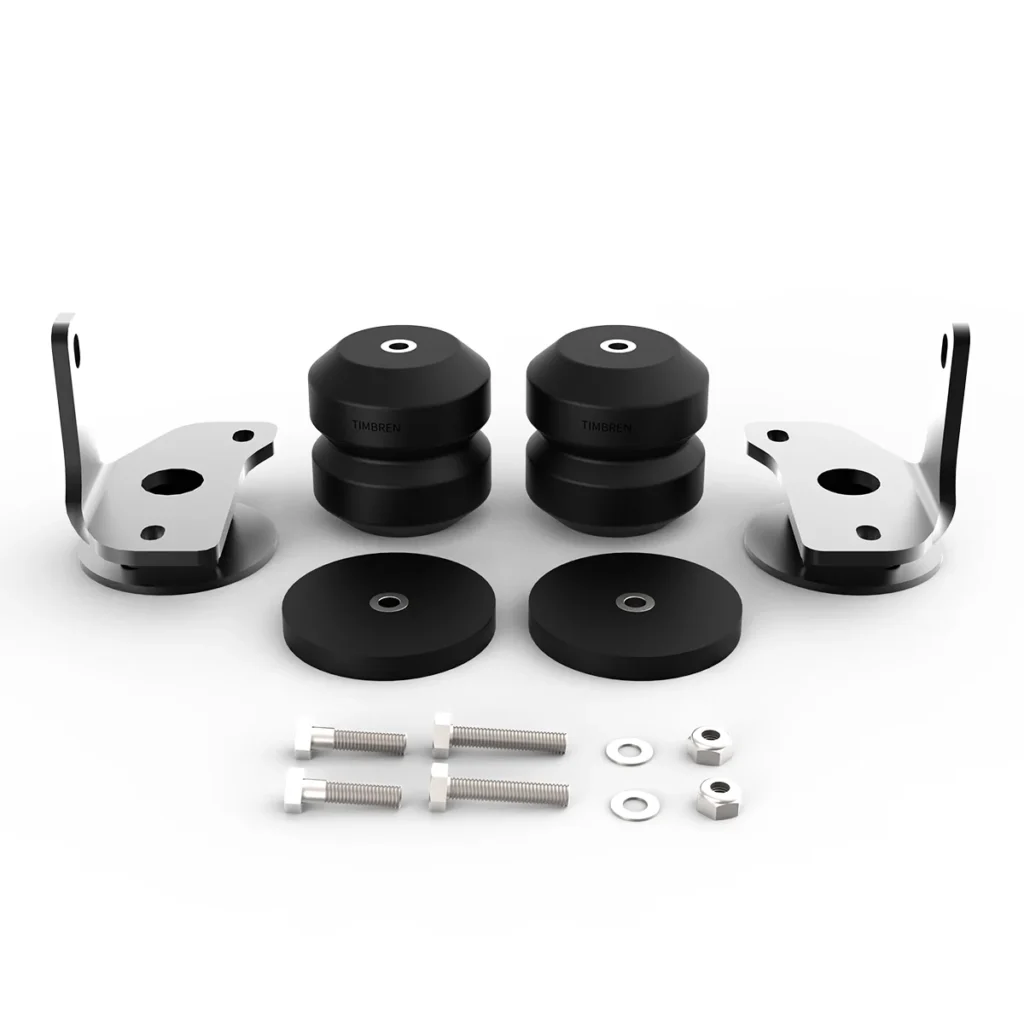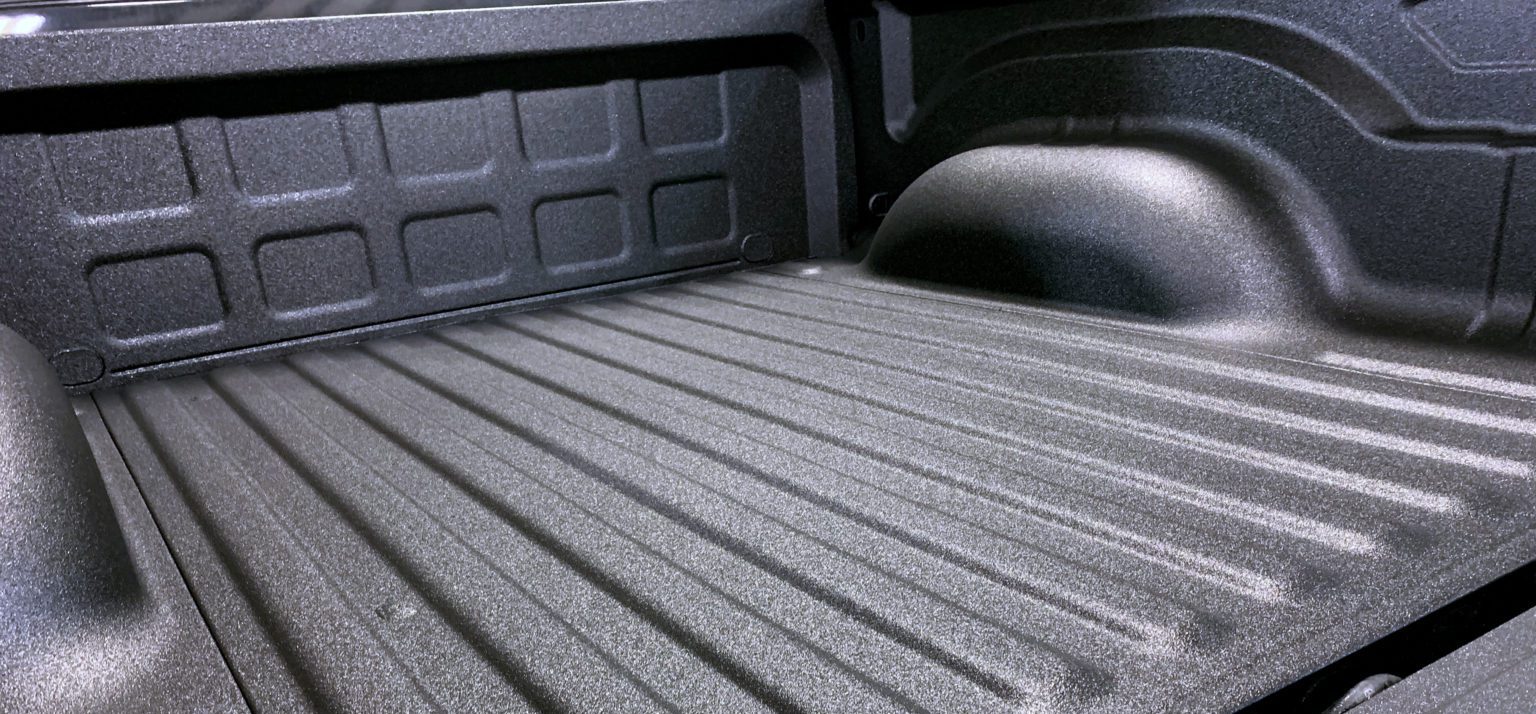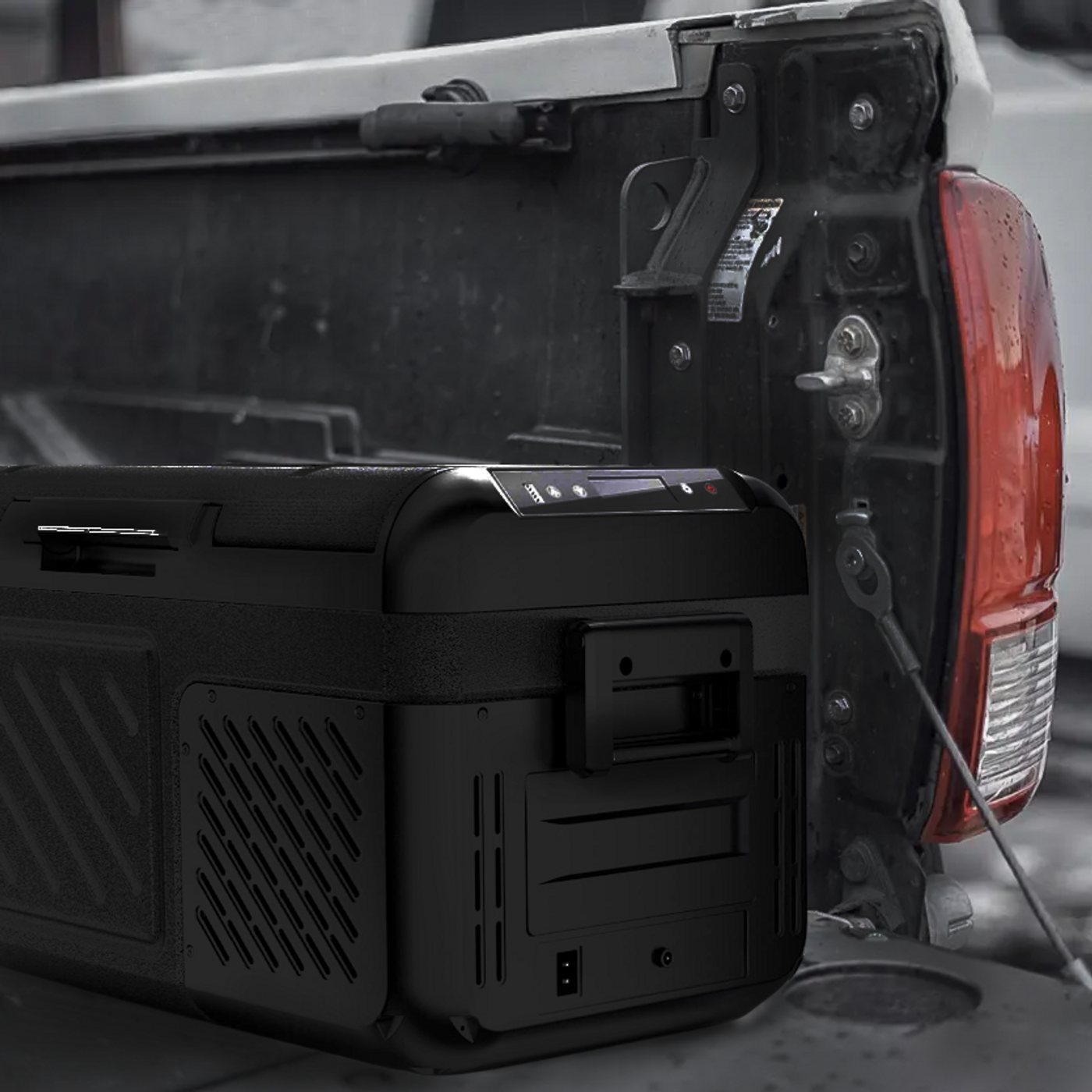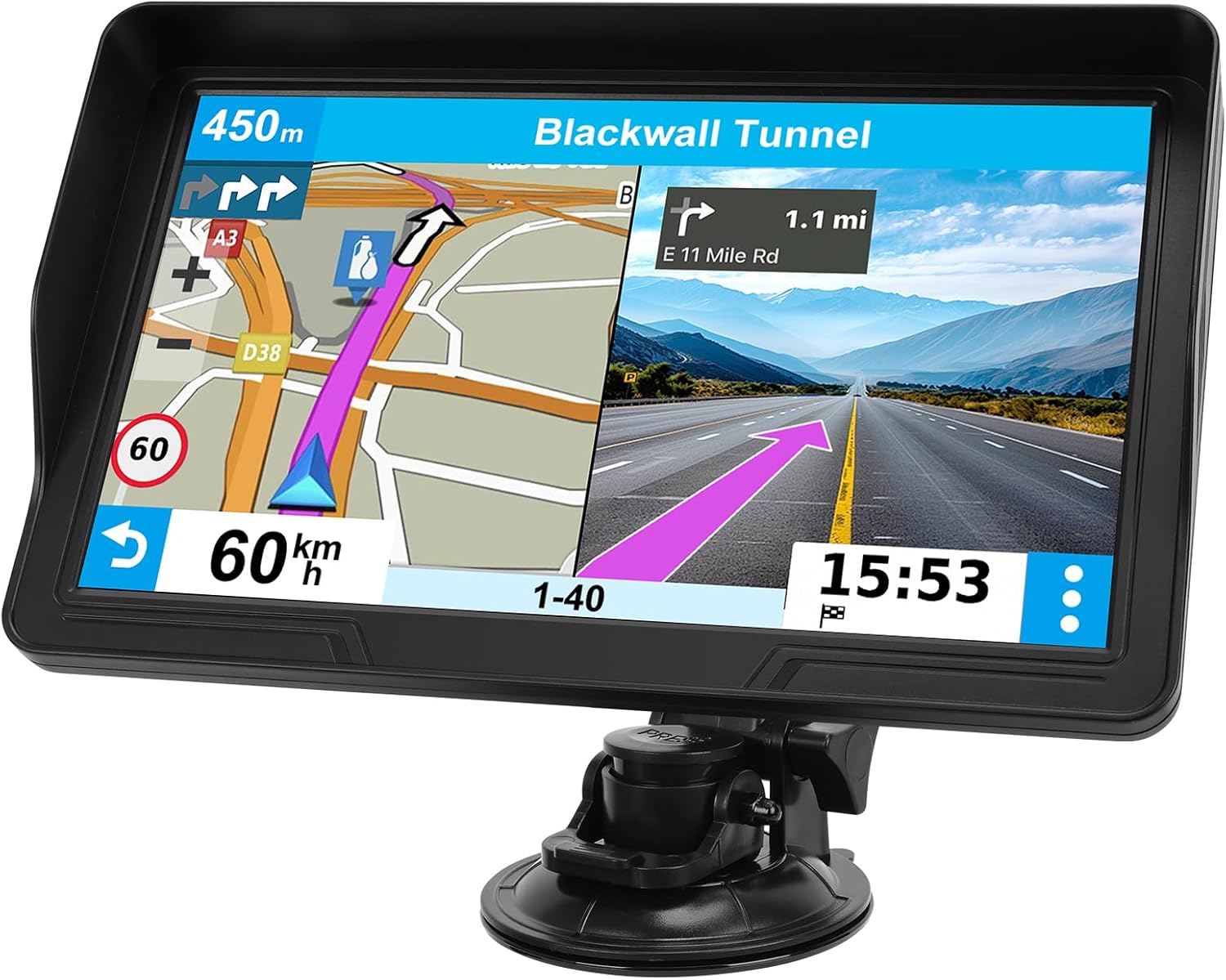Your shiny new 2025 Toyota Tundra is sitting in the driveway, and while it’s already a beast straight from the factory, you’re eyeing those trails that seem just a bit too gnarly for stock height. Sound familiar? Welcome to the club of truck owners who refuse to let a little ground clearance stand between them and adventure.
The third-generation Tundra has already proven itself as Toyota’s most capable full-size pickup yet, but sometimes “capable” isn’t enough when you’re staring down a rocky trail that looks like it was designed by someone with a serious grudge against undercarriages.
Why Lift Your 2025 Tundra? (Besides Looking Absolutely Awesome)
Let’s be honest – half the appeal of a lift kit is the intimidation factor when you roll up to the grocery store. But beyond the undeniable cool factor, there are legitimate reasons why lifting your Tundra makes sense for off-road enthusiasts.
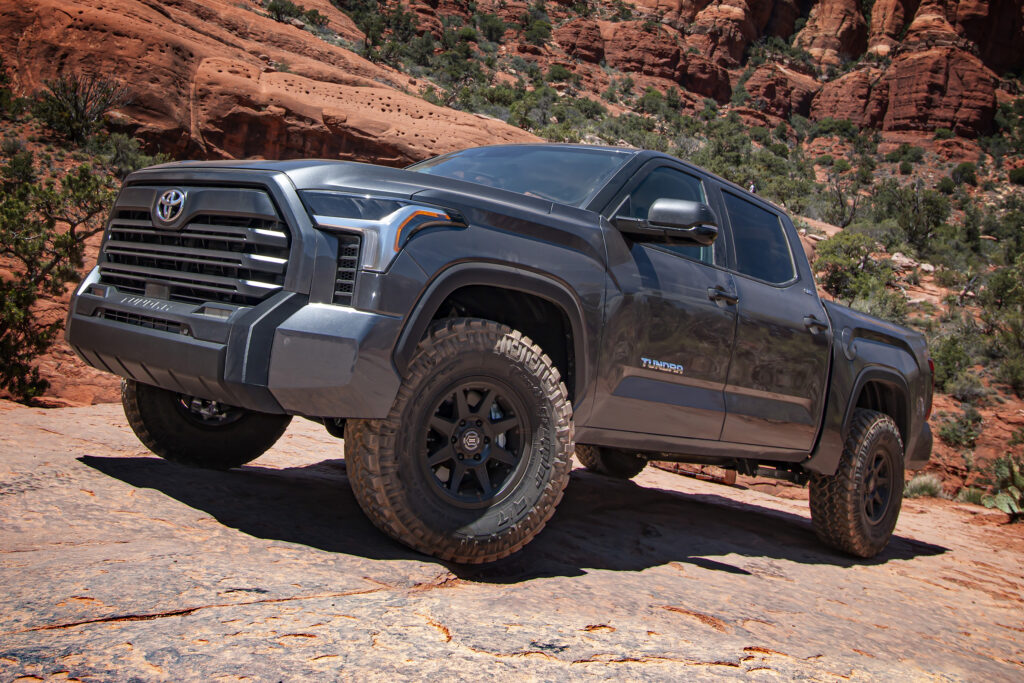
Ground Clearance That Actually Matters
Stock Tundras sit at a respectable height, but add a few inches and suddenly those boulder fields become navigable highways. We’re talking about the difference between tiptoeing around obstacles and driving straight over them with the confidence of someone who actually knows what they’re doing.
Bigger Tires, Bigger Problems (But Good Problems)
Once you lift your truck, you can finally fit those 35″ or even 37″ tires you’ve been dreaming about. Larger tires mean better traction, improved approach angles, and the ability to roll over obstacles that would stop lesser vehicles dead in their tracks.
Improved Suspension Articulation
A quality lift kit doesn’t just add height – it can actually improve how your suspension moves and flexes over uneven terrain. This means better tire contact with the ground when you’re crawling over rocks or navigating through deep ruts.
Types of Lift Kits: Choosing Your Adventure Level
Not all lift kits are created equal, and choosing the wrong one is like bringing a butter knife to a sword fight – technically a knife, but you’re probably going to regret it.
Leveling Kits: The Gateway Drug
If you’re new to the lifting game, a leveling kit might be your entry point. These typically add 2-3 inches to the front of your Tundra to eliminate the factory rake and create a more aggressive stance.
Pros: Affordable, simple installation, maintains factory ride quality
Cons: Limited height gain, doesn’t address rear suspension
Leveling kits work great if you want a subtle improvement without breaking the bank or voiding warranties left and right.
Which Leveling Kit Actually Levels Your Tundra??
Top Leveling Kit Manufacturers:
- Bilstein B8 5100 Series – Adjustable height with improved damping control, the industry standard for quality
The Bilstein 5100 for the 2022-2025 Toyota Tundra!
- Rough Country 2.5″ Leveling Kit – Budget-friendly option with lifetime warranty and solid reputation
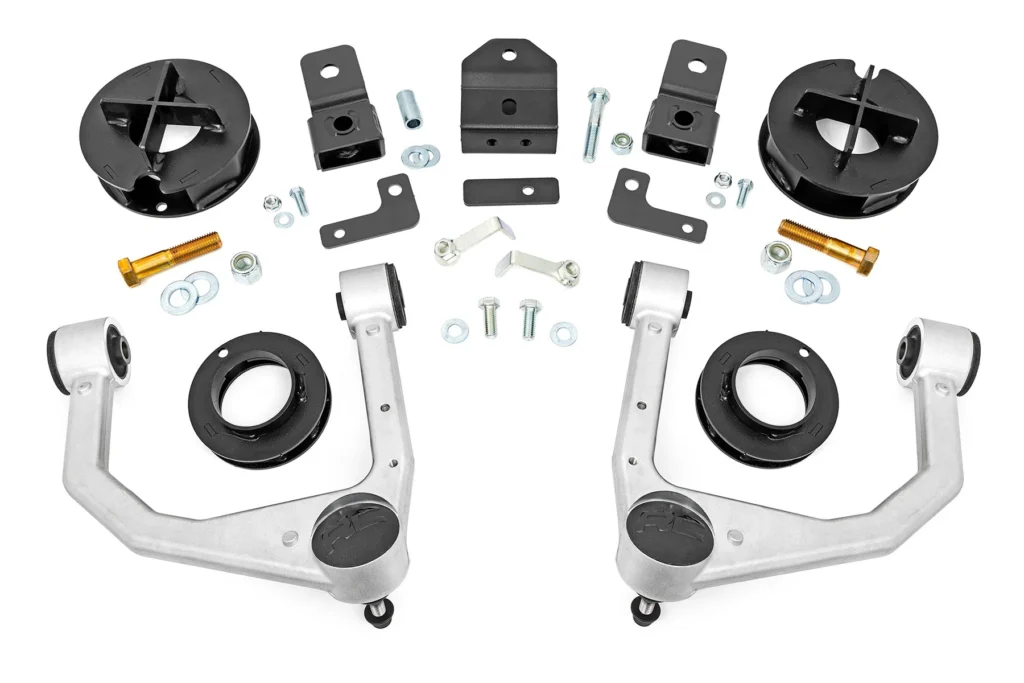
Toyota Tundra 2.5″ Lift Kit
- Pro Comp Nitro Series – Good value with multiple height options and proven durability
Coilover Lift Kits: The Sweet Spot
For most off-road enthusiasts, a quality coilover lift kit represents the perfect balance of performance, adjustability, and value. These systems replace your factory suspension components with adjustable coilovers that can typically provide 2-4 inches of lift.
Top Performers:
- Bilstein 6112/5160 Series – The industry standard for OEM+ performance with exceptional damping control and legendary durability
- King Shocks 2.5″ Performance Series – Premium option with reservoir technology, made in California with hand-built quality
- Icon Vehicle Dynamics Stage 2 – Great middle-ground option with proven reliability, excellent customer support, and bolt-on simplicity
- Fox Racing 2.0 Performance Series – Excellent middle-ground option with proven desert racing heritage and race-tested technology
10K Mile Review – Fox 2.5 Performance Elite Susupension. – 3rd Gen Toyota
- Eibach Pro-Truck Series – German engineering focused on maintaining ride quality while improving capability
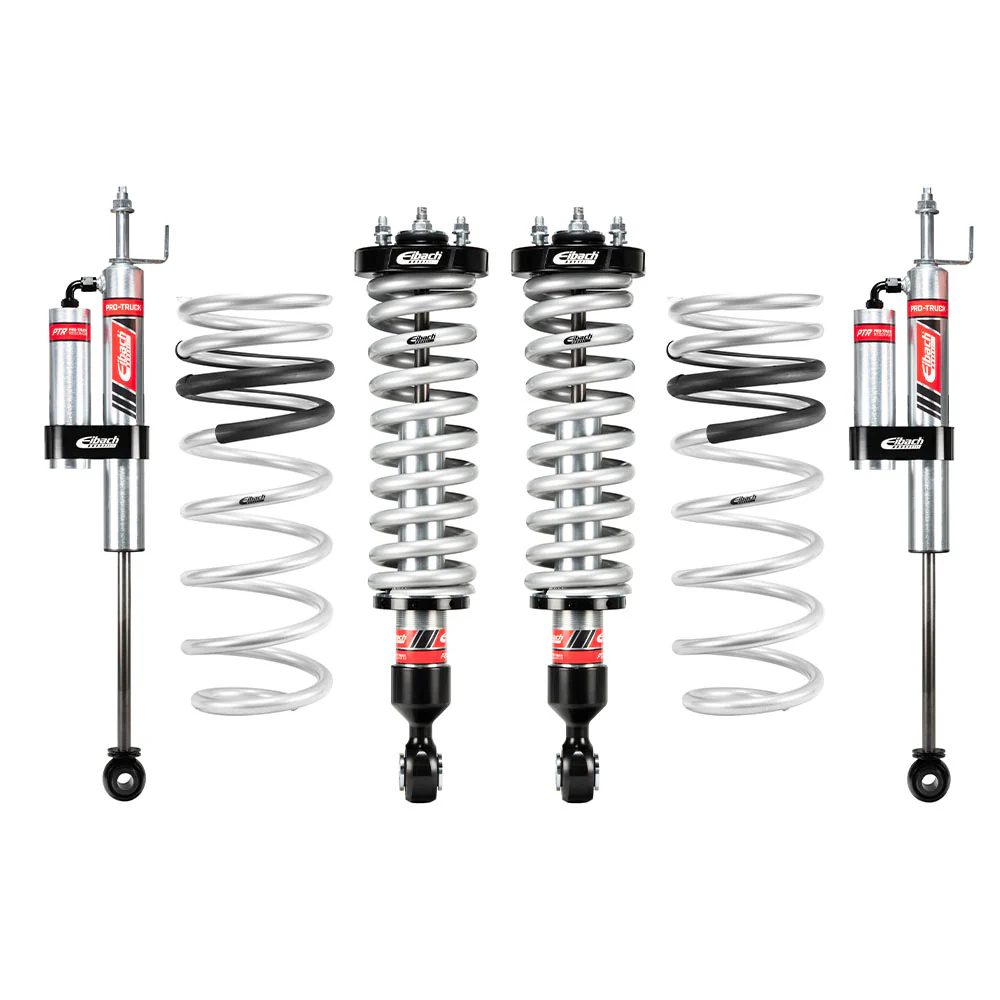
Long Travel Kits: Going Full Send
For those who view their Tundra as a legitimate desert racing machine, long travel kits extend suspension travel significantly while adding substantial lift. We’re talking 4-6 inches of lift with dramatically improved wheel travel.
Premium Long Travel Options:
- Fox Racing 3.0 Internal Bypass – The gold standard for desert racing applications with unmatched adjustability
King vs Fox vs Icon – Baseline Off the Self Behaviors
- King Shocks 3.0 Series – Hand-built quality with race-proven technology and legendary customer service
- Baja Kits Long Travel Systems – Specialized long-travel systems for serious pre-runners with custom fabrication expertise
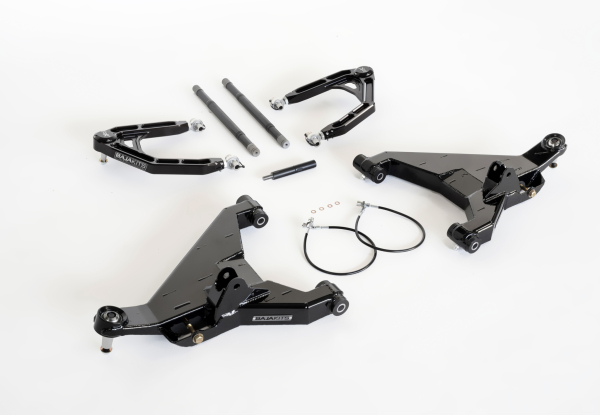
BAJA KITS PRERUNNER LONG TRAVEL 3RD GENERATION TUNDRA
These dominate the premium category, but expect to pay top-dollar prices for top-tier performance.
Installation: DIY Hero or Professional Wisdom?
Here’s where things get real. Installing a lift kit isn’t like changing your oil – it’s more like performing surgery on your truck’s skeleton while it’s still alive.
The DIY Route
If you’ve got a well-equipped garage, mechanical aptitude, and a weekend to spare, tackling a lift kit installation yourself can save significant money. You’ll need:
- Proper jack stands (please don’t die under your truck)
- Spring compressors: OTC
OTC Clam Shell Strughts Tool OTC6494
or Lisle professional-grade compressors for safe coilover work
- Torque wrench: Tekton or Pittsburgh Pro
- for accurate specifications and proper reassembly
- Alignment tools or a plan to get professionally aligned immediately
Strut Spring Compressors
Professional Installation
Most reputable 4×4 shops can handle lift kit installation, and the peace of mind is often worth the labor cost. Professional installers also typically provide warranties on their work and can spot potential issues before they become expensive problems.
Pro tip: Even if you install the kit yourself, budget for a professional alignment afterward. Your truck’s handling and tire wear depend on it.
Performance Expectations: Reality vs. Instagram
Let’s manage expectations here. A lift kit will transform your Tundra’s off-road capability, but it’s not magic pixie dust that turns your truck into a rock-crawling deity overnight.
What Actually Improves
Approach and departure angles: You’ll clear obstacles that would scrape stock trucks
Ground clearance: Obviously, but the difference is more dramatic than you might expect
Tire fitment: Bigger tires mean better traction and more aggressive looks
Suspension articulation: Better wheel travel equals better traction in technical terrain
What Might Get Worse
On-road ride quality: Lifted trucks often ride stiffer, especially with performance-oriented setups
Fuel economy: Bigger tires and increased wind resistance take their toll at the pump
Center of gravity: Higher trucks are more prone to body roll in corners
Entry and exit: Hope you’ve been working on your climbing skills
Budget Reality Check: What You’re Actually Looking At
Lift kits for the 2025 Tundra range from “reasonable splurge” to “second mortgage territory,” and knowing what you’re getting into financially helps avoid awkward conversations with your significant other.
Budget Tier ($800-$1,500)
Basic leveling kits and entry-level coilover setups. These work fine for mild off-roading and improved aesthetics without breaking the bank.
Mid-Range ($1,500-$4,000)
Quality coilover systems from reputable manufacturers. This is where most enthusiasts land, offering excellent performance without extreme costs.
Premium ($4,000-$8,000+)
High-end long travel kits with premium components. These are for serious off-road enthusiasts who demand the absolute best performance.
Don’t forget installation costs (typically $500-$1,500), alignment ($100-$200), and the inevitable “while we’re in there” modifications that always seem to happen.
Essential Supporting Modifications
A lifted Tundra often benefits from complementary upgrades to maximize performance and safety:
Steering Stabilizers
- Fox Racing Steering Stabilizers – Race-proven technology for precise control
- Bilstein Steering Dampers – OEM-quality damping with improved durability
- King Shocks Steering Stabilizers – Hand-built quality with custom valving options
Skid Plate Protection
- RCI Metalworks – Heavy-duty aluminum construction with excellent coverage
- Shrockworks – Precision-fit steel plates for maximum protection
- CBI Off-Road – Modular systems with easy access panels
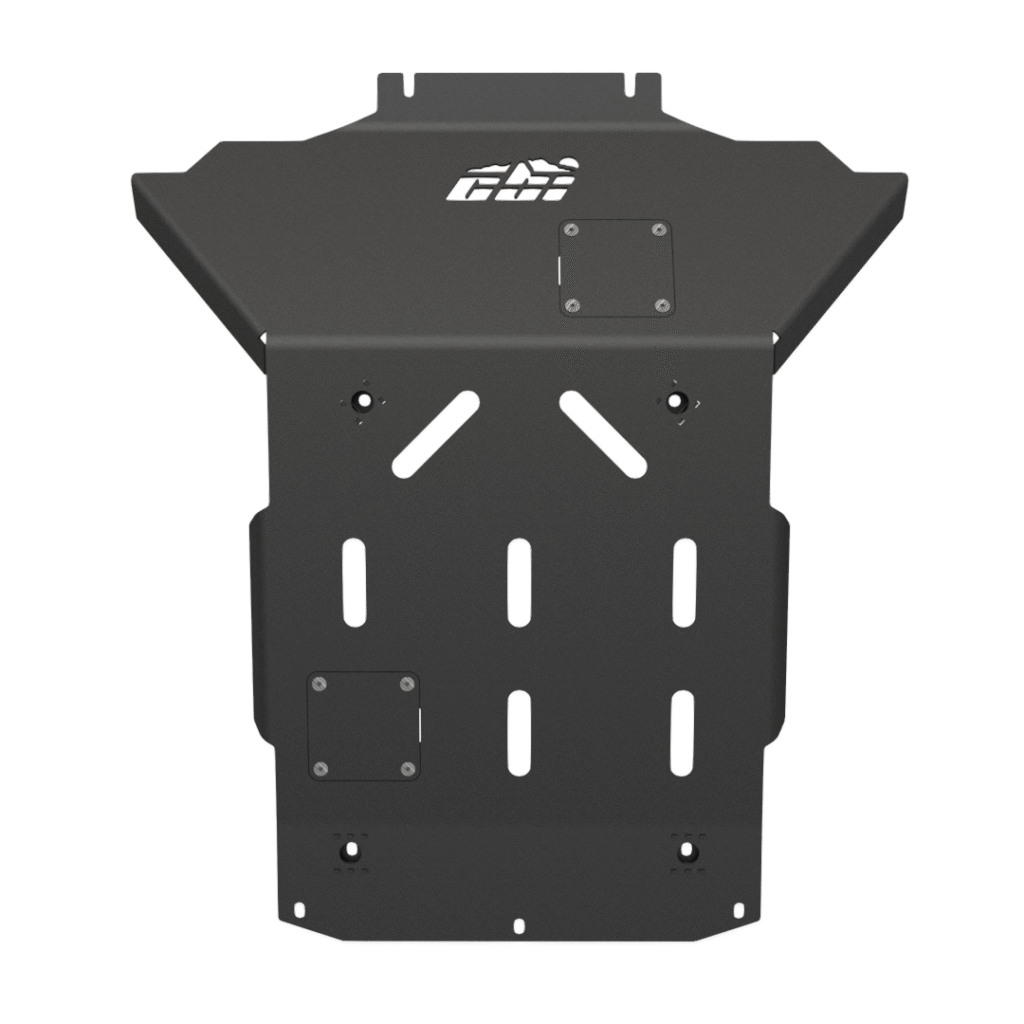
22+ Tundra TRD Skid Plate Installation
Brake Line Upgrades
- Russell Performance Stainless Lines – DOT-approved with improved pedal feel
- Goodridge Stainless Steel Lines – Race-quality construction with lifetime warranty
Watch This BEFORE You Lift Your 2022 Toyota Tundra
Load Support
- Timbren SES Kits – Progressive bump stops for improved load handling
Timbren SES (SuspensionEnhancement System) – Loaded vs Unloaded
- SuperSprings Helper Springs – Adjustable load support without affecting ride quality
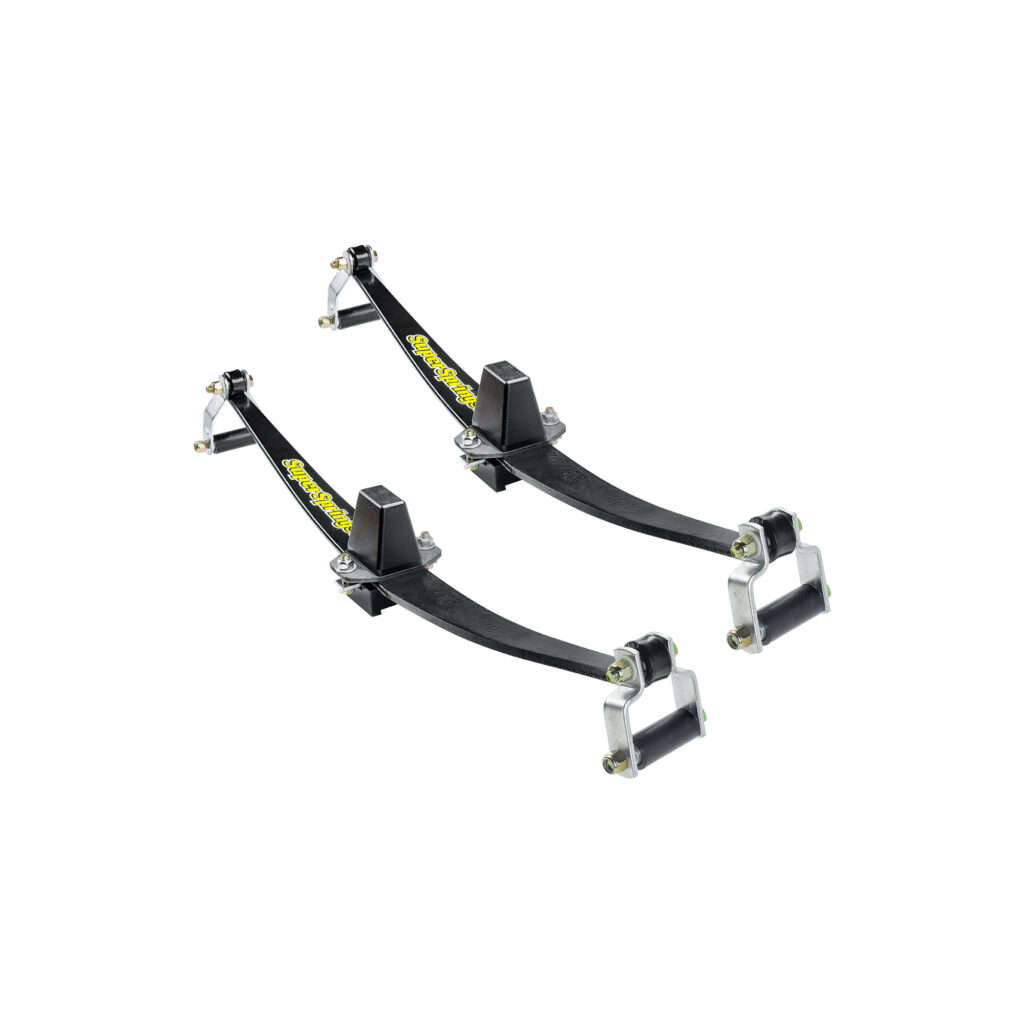
SuperSprings vs SumoSprings
Maintaining Your Lifted Tundra: Keeping the Adventure Alive
A lifted truck requires slightly more attention than stock, but nothing that should scare off anyone serious about off-roading.
Regular Inspections
Check suspension components, bushings, and joints more frequently. Off-road adventures are hard on equipment, and catching problems early saves money and prevents trail-side breakdowns.
Alignment Monitoring
Lifted trucks can be more sensitive to alignment changes. Keep an eye on tire wear patterns and don’t ignore steering issues.
Component Upgrades
Consider upgrading other components like steering stabilizers, brake lines, and skid plates to match your lift kit’s capabilities.
The Bottom Line
Lifting your 2025 Tundra opens up a world of off-road possibilities, but success depends on choosing the right components for your intended use and budget. Whether you go with a simple leveling kit from Rough Country or a premium long-travel setup from Fox Racing, the key is matching your modification to your actual needs rather than your Instagram aspirations.
Remember: the best lift kit is the one that gets you out on the trails safely and brings you home ready for the next adventure. Choose wisely, install properly, and maintain regularly – your Tundra will reward you with years of capability that’ll make you wonder why you waited so long to make the upgrade.
Ready to transform your 2025 Toyota Tundra into the ultimate off-road machine? Research thoroughly, choose quality components, and don’t forget to budget for professional installation and alignment. Your future trail-conquering self will thank you.
